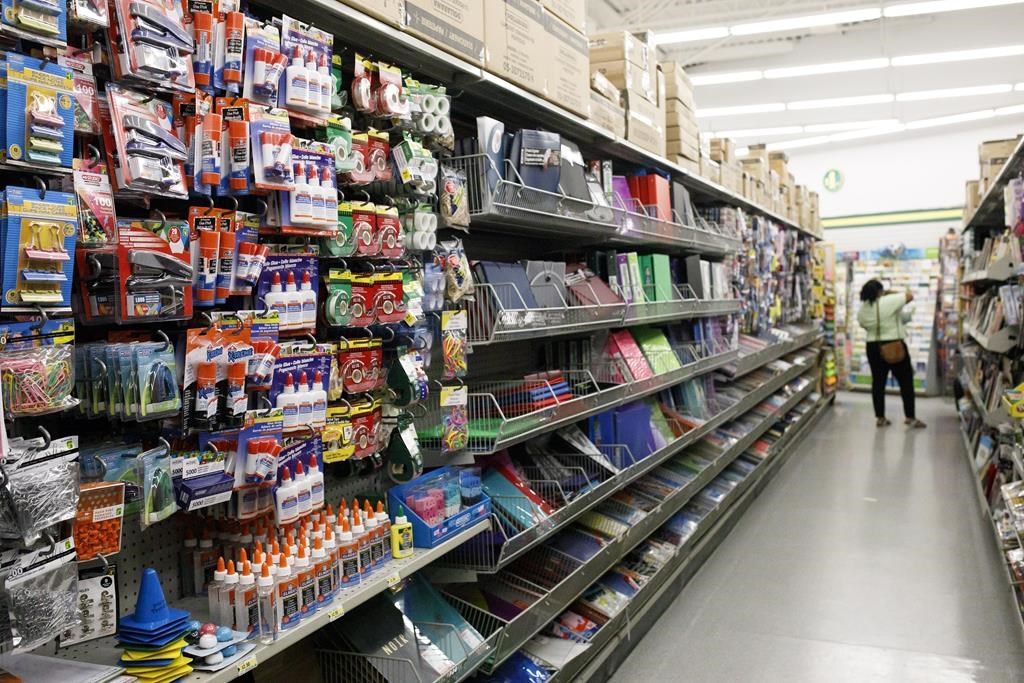How to cut back on post-secondary costs: Don’t buy every supply you think you need

Posted Aug 8, 2023 03:56:54 PM.
Last Updated Aug 8, 2023 04:01:12 PM.
When fourth-year Carleton University journalism student Boshko Maric started his undergraduate degree in the height of the pandemic, he didn’t have many people in his life to turn to for advice on the supplies he needed to buy.
Given he spent the first year of his degree at home, everything he budgeted for — whether it was books, electronics or future housing costs — was a case of trial and error.
“Towards the beginning, I was definitely a bit more concerned about getting the things that the school recommended,” he said. “But eventually reality kind of set in and my philosophy definitely changed when I realized how little I actually needed all that stuff.”
With inflation rates driving the price of nearly everything through the roof these days — eating into young Canadians’ disposable income especially hard, according to a recent survey by RBC — developing a more selective approach to spending on school necessities is a must, said Ellyce Fulmore, a financial educator focusing on Gen Z and millennials.
“The way you spend your money in university can really affect your life in the long-run, so it’s important to think about how you’re spending the money you have,” she said.
Fulmore emphasized the importance of making a budget and developing strategies to ensure strict adherence to it, particularly for students who may not have had to pay for their own expenses before nor possess the experience needed to responsibly manage a massive student loan deposit.
“When you get that big lump of money at the beginning of the year, there’s a good chance you’re going to feel like you have all this money to spend without any issues and you’ll spend it,” she said.
“So getting an idea of what’s actually necessary for you at first — even if that means ignoring some of the things people say you need — can be really important.”
Maric learned this lesson first-hand. In his first few years of university, he said he felt inclined to purchase all the recommended journalism equipment and textbooks for his classes. However, more often than not, the supplies he bought were left to gather dust in his room.
“Even when you get the stuff second hand, it can still cost you in the hundreds, and a lot of times, you can ace the assignments without them,” he said.
Maric said he now purchases or rents recommended materials when he is certain they are necessary for his success in the class, often waiting until later into the semester to get them. He also decided to prioritize spending on his major courses as opposed to spending equally on his electives.
Fulmore noted such decisions are unique to the individual and degree program.
“In general, the tools you’re going to use every day while you’re at school are what you should invest the most in,” she said. “For some people, that’s going to be noise-cancelling headphones, and for others, it’s going to be paying higher rent for an apartment closer to campus.”
Fulmore recommended that first-year students join online groups related to their school or program to get varying perspectives on what materials are worth skipping out on, as well as finding ways to limit spending independently. She suggested using a prepaid credit card to prevent impulse and emotional purchases, as well as automating the deposit of a small amount of money every month into a short-term savings account.
“That way, you’ll have a bit of a nest egg in case you do need to spend a lot on something for school at some point,” she added.
Maric said the most useful splurges he’s made at university have been a solid laptop and the amenities that came with his centrally located apartment, including an in-unit washer and drier and furniture.
“But for some of my friends, being able to take notes on an iPad was really helpful for them, and living in a dorm was something they really wanted to experience,” he added.
“So it really is up to the person themselves.”
Fulmore cautioned that students should keep in mind how spending while in university can contribute to or detract from future financial goals.
“It’s hard not to get swept up in what the ‘university experience’ is supposed to be and what you need to buy to get there,” she said.
“But you can have a great university experience while achieving certain money goals, like having the funds to pursue a graduate degree or graduating debt free.”
This report by The Canadian Press was first published Aug. 8, 2023.
Pascale Malenfant, The Canadian Press








